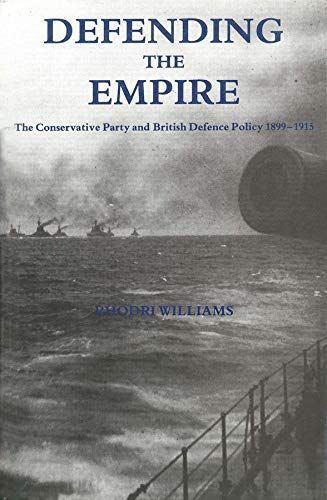
Defending the Empire The Conservative Party and British Defence Policy, 1899-1915
Deference issues were of central importance in British politics in the years before the first World War, as naval and military policy absorbed the attention of politicians of both parties. The growing menace to Briatin of the German Navy focused public attention on questions of naval strength and home defense. However, the heavy cost of overhauling the British Empire’s stretched defenses clashed with the domestic political priorities of successive governments. This book is the first scholarly work to examine the vigorous political debates over defense policy in this era from the perspective of the Conservative party, who were in office from 1899 to 1905 and in opposition from 1905 to 1914. It focuses in particular on the ideas and actions of Arthur James Balfour, leader of the Conservative party from 1902 to 1911 Rhodri Williams assesses how effective the Conservative leadership was in realizing its policy objectives. By explaining the Conservatives’ approach to contemporary controversies over conscription and the construction of Dreadnoughts, he highlights the complexity o the problems facing British policymakers in the period after the Boer War when, against a bleak financial background, they sought to rationalize and strengthen the Empire’s defenses. The book is important for many reasons. It significantly advances our understanding of the nature of Conservative politics in the early twentieth century. It sheds fresh light on one of the major areas of party political contention in the Edwardian era. It gives us interesting information on Balfour and on a key period of his distinguished political career. And it offers a new perspective on the process by which British defense policy ceased to revolve around the "Great Game” with Russia in Central Asia and came increasingly to turn on Anglo-German naval rivalry in the North Sea.